MS-ETS1-3
Analyze data from tests to determine similarities and differences among several design solutions to identify the best characteristics of each that can be combined into a new solution to better meet the criteria for success.
-
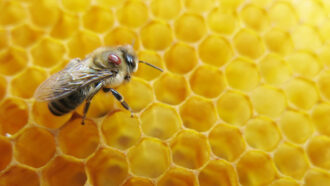 Tech
TechA device spots and counts honeybees hosting a dangerous parasite
At Regeneron ISEF, three teens debuted an infrared system to detect honeybees carrying mites. It can show beekeepers when a colony needs to be treated.
-
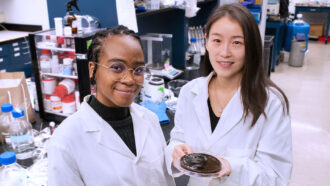 Tech
TechA new solar-powered gel purifies water in a flash
The unusual, fruit-inspired structure of this material provides quick filtration that could satisfy people's daily water needs.
-
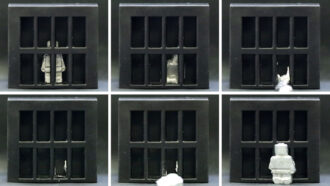 Tech
TechMagnetic fields melt and re-form new shape-shifting devices
Miniature machines made of gallium and magnetic particles can switch from solid to liquid and back.
-
 Materials Science
Materials ScienceAnalyze This: Algae behind blue-glowing waves light up a new device
Some algae glow blue when they experience forces. Held in transparent plastic, they now make devices light up in response to gentle pushes and tugs.
-
 Computing
ComputingSleep helps AI models learn new things without forgetting old ones
Breaks in training meant to mimic human sleep helped artificial intelligence learn multiple tasks.
-
 Physics
PhysicsDoes the size of a parachute matter?
How does a parachute work? Do bigger parachutes work better than smaller parachutes? Find out in this science project whether the size of the parachute matters.
-
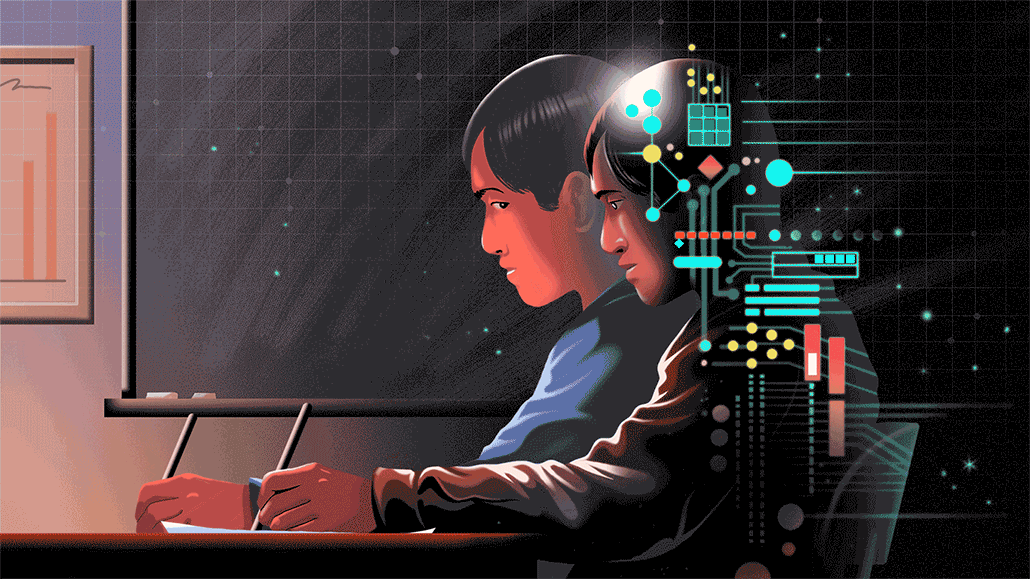 Tech
TechThink twice before using ChatGPT for help with homework
ChatGPT is a new AI tool that generates well-formed writing and code. Despite many benefits, it makes cheating easy and can supply bad information.
-
 Environment
EnvironmentFor a better brick, just add poop
Sewage sludge. Cow dung. They’re not just waste — scientists are finding uses for processed poop in construction materials.
By Laura Allen -
 Tech
TechA shape-shifting robotic tooth-cleaner might one day brush for you
A swarm of billions of magnetic, bacteria-killing nanoparticles can be shaped into bristles to fit any surface, including between teeth.
-
 Tech
TechCan computers think? Why this is proving so hard to answer
In 1950, Alan Turing proposed a test to tell a human from a computer. Today, that Turing test may tell us more about ourselves than about machines.
-
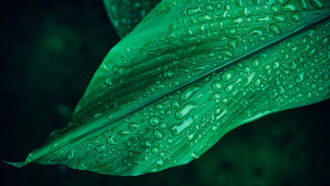 Plants
PlantsNo sun? No prob! A new process might soon grow plants in the dark
Teamwork makes green-work! Collaborating scientists came up with an electrifying farming trick that could make sunlight optional.
-
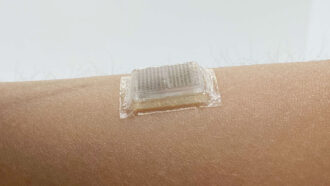 Tech
TechNew stick-on ‘sonar’ device lets you watch your own heart beat
This wearable patch might one day make personalized medicine affordable almost anywhere in the world.
By Asa Stahl